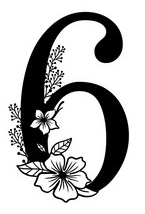Director: Nadine Labaki
Stars: Zain Al Rafeea, Yordanos Shiferaw, Alaa Chouchnieh
The third film from Lebanese director Nadine Labaki sets its eyes squarely on the abject poverty of her home country’s least empowered people, acting as a sobering lesson for those of us sitting in the privileged comfort of our western armchairs. Cabernaum has been lauded, taking a top prize at Cannes and showing up on the nominees list for Best Foreign Language Film at both the Golden Globes and the Oscars.
The story concerns 12(?) year old Zain (Zain Al Rafeea) who, at the beginning of the film, is appearing in court in order to sue his parents for having him in the first place. It’s a day away from jail, where is serving a sentence for stabbing a man. Labaki then flashes back to the events that led to this eyebrow raising set of circumstances.
Our firebrand protagonist runs away from home when his parents sell off his beloved sister Sahar (Haita ‘Cedra’ Izzam) to a local businessman in exchange for some chickens. Fending for himself at a rundown fairground, Zain befriends an Ethiopian immigrant, Rahil (Yordanos Shiferaw), who lives in a slum with her infant son Zonas (Boukwatife Treasure Bankole). When Rahil is detained, Zain finds himself in charge of the child, their circumstances growing increasingly rickety as the struggle for survival ekes on.
It’s an unremittingly bleak depiction of life on the edge, where humans can be bought and sold like so much (or so little) merchandise, and Labaki’s vision of Lebanon is akin to an unstable house of cards built on such flimsy bartering. A local retailer, Aspro (Alaa Chochnieh), has his eyes on young Zonas as a potential source of income. Zain, having grown up too fast, is acutely aware of how predatory adults can be.
In a manner similar to that of Ken Loach’s hectoring I, Daniel Blake, Cabernaum has the feel of several very real tales of cruelty and misfortune having been spun together in order to cover off a range of societal ills. The sheer number of miseries come to feel slightly contrived, so much so that a ray of hope near the film’s end feels equally at odds with the truth. There is, of course, every reason to feel outraged at any of these injustices, but piled together they feel a little laboured.
For a while, however, Labaki has something riveting on her hands. The first hour doesn’t really feel this weight, despite the horrors on show. It helps that young Al Rafeea is an incredibly capable find. Zain’s determination to protect his sister is admirable, but in it one also sees the seeds of another kind of patriarchy. As well-intentioned as he is, there’s still a sense of entitlement and ownership over his sister.
When the film briefly becomes a road movie, it echoes the strong opening stretch of Garth Davis’ Lion (Al Rafeea’s wide-eyes are as cute and manipulative as little Sunny Pawar’s), and Zain’s forlorn refuge at the rundown fairground carries with it a dilapidated poetry of sorts that even manages to charm. During this section, Zain wears a pair of Captain America joggers, while he also befriends a curious old man in a knock-off Spider-man outfit who calls himself Cockroach Man (Joseph Jimbazian). This adds a brief element of whimsy, while it also paints our western fixation with superheroes as laughably immaterial when placed in such an impoverished context. Here, such fantasy characters mean nothing; their sigils on clothes are irrelevant.
It is only once Zain becomes saddled with the daunting responsibility of Zonas that the rot starts to set in. Capernaum‘s momentum bottles out and the middle of the film becomes a laundry list of troubles. Labaki seems to lose focus. The film’s message regarding overpopulation and absentee parenting is then dumbly thrown in the audience’s face. After sprinting out of the gate, it’s as though Labaki trips over her laces before she’s realised they’re untied.
Having said that, Capernaum‘s credentials as an awareness piece are strong. Lebanese cinema rarely gathers this much exposure, and all the issues presented here are valid and worthy of wider discussion. It also features across-the-board strong performances. Improbably, even Boukwatife Treasure Bankole – the dazzled little one-year-old – always seems on point. And Labaki mounts an authentic-seeming production, with occasional montage sequences managing to secure a sense of cultural context with admirable economy. She also sees visual dynamism in the least likely of places (a plethora of tyres used as weights to hold down roofs, for instance). There is talent evident everywhere, which makes the clumsiness of the second hour seem all the more frustrating.

